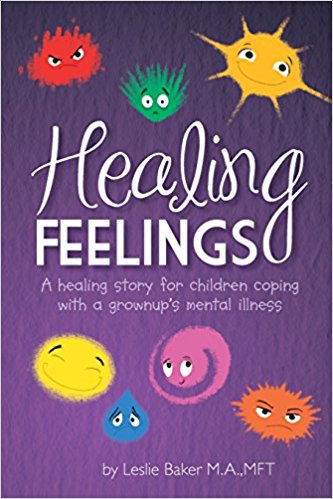Publications
Leslie has had the opportunity to provide her counseling expertise through print and speaking engagements

NEW
Assessing and Treating Suicidal Thinking and Behaviors in Children and Adolescents
A Play Therapy Guide for Mental Health Professionals in Clinical and School-Based Settings
Edited By Leslie W. Baker and Mary Ruth Cross
Copyright 2025
A guide for dealing with kids and teenagers who show up with overt or covert suicidal ideas, intentions, or thoughts.
The chapters concentrate on supporting parents, caregivers, families, and schools while also examining a variety of therapy modalities. The chapters include evidence-based methods including dialectical behavior therapy (DBT), cognitive-behavioral therapy (CBT), and prescriptive play therapy in addition to emphasizing expressive therapies.
This book will equip expressive therapists, school-based counselors, and other clinicians who work with at-risk kids and teens from a variety of communities and backgrounds with the skills necessary to incorporate each child’s strengths, sources of distress, and available resources to create a treatment plan that is a developmentally appropriate treatment plan.
Books
Baker, L. (2025). In Virtual Reality: Suicide Assessment, Treatment, and Prevention of Mental Health Disorder. Stone, J. (2025). Mental Health Virtual Reality: The Power of Immersive Worlds. John Wiley & Sons.
Baker, L. W., & Cross, M. R. (2024). Assessing and treating suicidal thinking and behaviors in children and adolescents: A Play Therapy Guide for Mental Health Professionals in Clinical and School-Based Settings. Routledge. https://www.routledge.com/Assessing-and-Treating-Suicidal-Thinking-and-Behaviors-in-Children-and-Adolescents-A-Play-Therapy-Guide-for-Mental-Health-Professionals-in-C/Baker Cross/p/book/9781032410821
Baker, L. (2022). Expressive Therapies in Telemental Play. In Stone, J. (Ed.), Play Therapy and Telemental Health: Foundations, Populations, and Interventions (pp. 201-216). Routledge.
Baker, L. (2019). Therapy in the Digital Age. In Stone, J. (Ed.), Integrating Technology into Modern Therapies (pp. 37-47). Routledge.
Baker, L. & Cross, M.R. (2019) Snug & Rug and the ‘No Good Very Bad Thing’: A story of coping calming & courage for children. Therapy2Thrive.
Baker, L. (2017). Healing Feelings: A healing story for children coping with a grownup’s mental illness. Yorkshire.
925-998-3392
Contact Leslie Baker in Pleasanton for a confidential, no obligation 15 minute-telephone consultation on marriage, teen and family counseling.
Could Reading Children’s Books on Mental Health Issues Help Children?
People often ask, “Will reading children’s books on special concerns, like anxiety, depression or mental health issues help my child?” The answer according to research is, yes!
Is happiness born, raised or developed through practice?
Researcher indicates that only about 50% of happiness comes from nature and/or nurture. The other 50% is considered to be a strategy that people can learn, practice and develop. What is the 5-3-1 strategy for happiness?
Love yourself daily!
We can obsess on media to approve of who we are or we can trust ourselves by looking inside to define how truly unique and extraordinary we are! Love yourself daily! Read more.





